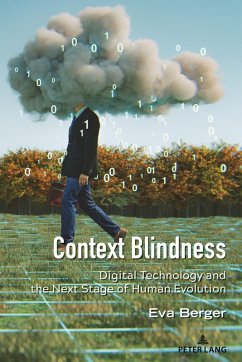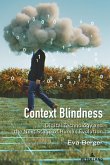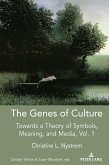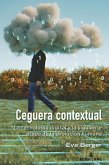Are people with autism giving us a glimpse into our future human condition? Could we be driving our own evolution with our technology and, in fact, be witnessing the beginning of the next stage of human evolution? The thesis at the center of this book is that since we have delegated the ability to read context to contextual technologies such as social media, location, and sensors, we have become context blind. Since context blindness-or caetextia in Latin-is one of the most dominant symptoms of autistic behavior at the highest levels of the spectrum, people with autism may indeed be giving us a peek into our human condition soon. We could be witnessing the beginning of the next stage of human evolution-Homo caetextus. With increasingly frequent floods and fires and unbearably hot summers, the human footprint on our planet should be evident to all, but it is not because we are context blind. We can now see and feel global warming. We are witnessing evolution in real-time and birthing our successor species. Our great-grandchildren may be a species very distinct from us. This book is a must for all communication and media studies courses dealing with digital technology, media, culture, and society. And a general reading public concerned with the polarized public sphere, difficulties in sustaining democratic governance, rampant conspiracies, and phenomena such as cancel culture and the need for trigger warnings and safe spaces, will find it enlightening.
Dieser Download kann aus rechtlichen Gründen nur mit Rechnungsadresse in A, D ausgeliefert werden.
"In Context Blindness, Dr. Eva Berger presents a persuasive case that human beings, shaped by the media environments we have created, are evolving to a species that will not or cannot attend to the contexts we inhabit. Our ever-present connection to the internet that first intruded upon our sacred spaces (family dinner, classrooms, and churches) has now simply erased our understanding of how behaviors and spaces might differ. This erasure has replaced questions about what subjects and actions are appropriate in a specific context with arguments about trigger warnings and safe spaces-ultimately making no space safe. The algorithms that rule our lives are encouraging cancel culture and blinding us to the very idea of perspective. With an artful and passionate prose, Berger has issued a warning that the toxic human behaviors we are observing may be a natural selection provoked by our own inventions."-Missy Alexander, Provost, Western Connecticut State University









